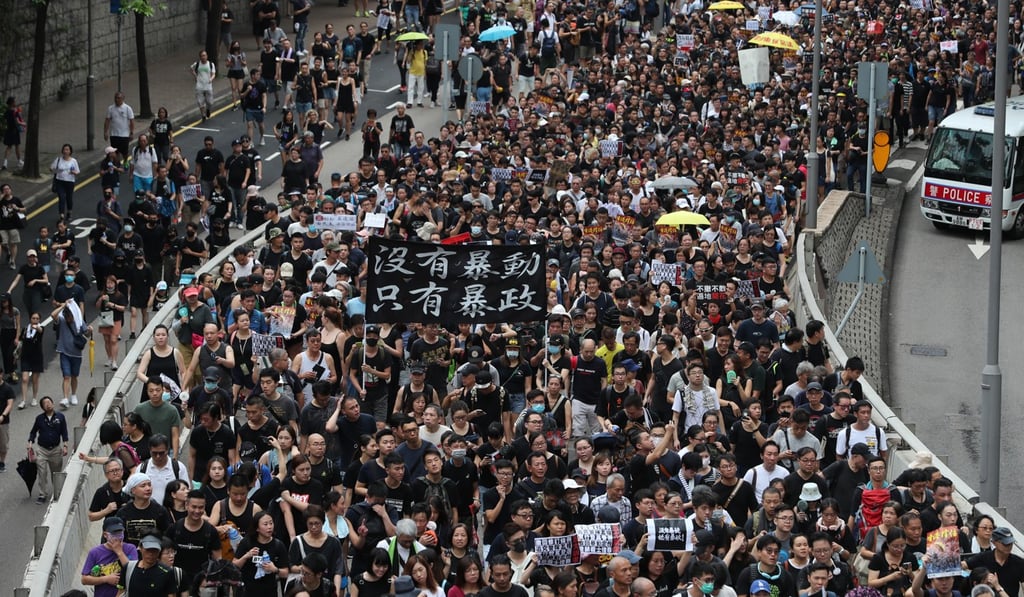Inside Out | It’s China’s job to restore public trust in Hong Kong. Carrie Lam can’t do it alone
- The Hong Kong government can’t convince the world its autonomy is intact when it’s assumed Beijing calls the shots
- Carrie Lam’s government should focus on building bridges in the community, rather than consider mounting any global PR campaign

The cheerful Yorkshire cabby was typically talkative as he bundled away my luggage at York railway station, 200 miles north of London. The clouds threatened rain. His taxi radio blathered about Boris Johnson and Brexit as he asked where I was from. When I told him Hong Kong, the cheer immediately froze: “You’ve been having a bit of bother out there, haven’t you. Looks like your Carrie Lam is in a bit of a mess.”
No matter where I have been in the UK in the past two weeks, everyone I meet knows everything about Hong Kong’s “bit of bother”, is seriously concerned, and has strong opinions. For everyone, the story has been grossly bowdlerised: it is about China changing Hong Kong laws so they can whisk troublemakers away to the mainland if they cause too much bother. It is also taken for granted that whatever is said about “one country, two systems”, Hong Kong’s bureaucrats are no more than puppets dancing to Beijing’s tune.
All attempts on my part to suggest that the story is a bit more complicated than that have been in vain. Suggestions that Chief Executive Carrie Lam Cheng Yuet-ngor decided for herself to fast-track the extradition bill, and was not prompted by nudges from China, are derisively dismissed. How could I be so naive, they ask.
While there can be no doubt that a more nuanced understanding of Hong Kong is urgently needed, alarm bells have gone off in my mind. This must surely be a very bad idea, for two reasons above all others: first, any international campaign that is daily contradicted by black-shirted Hong Kong students in their tens of thousands is going to attract only ridicule.

And second – perhaps insurmountably difficult to overcome at present – is that the world does not want to hear from the puppet. Only a calming campaign by the puppet-masters themselves is likely to restore international confidence, right down to my Yorkshire cabby.
